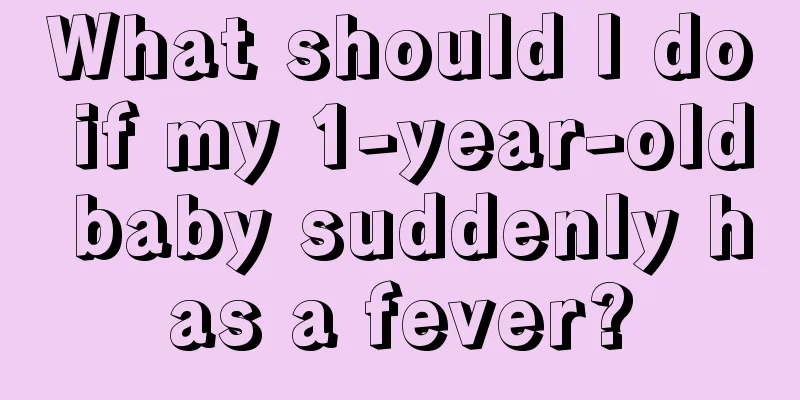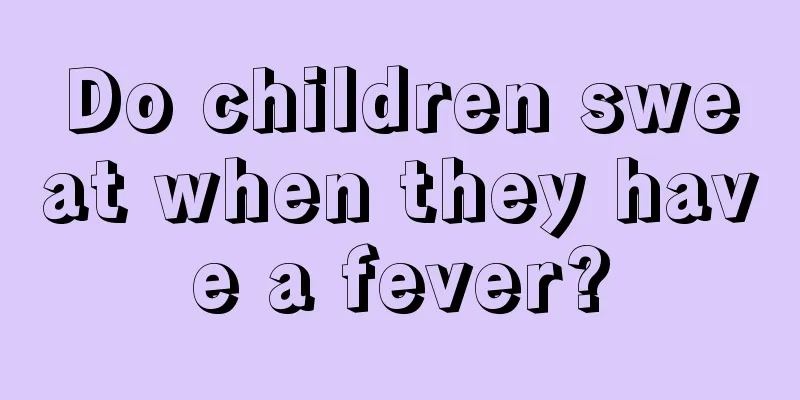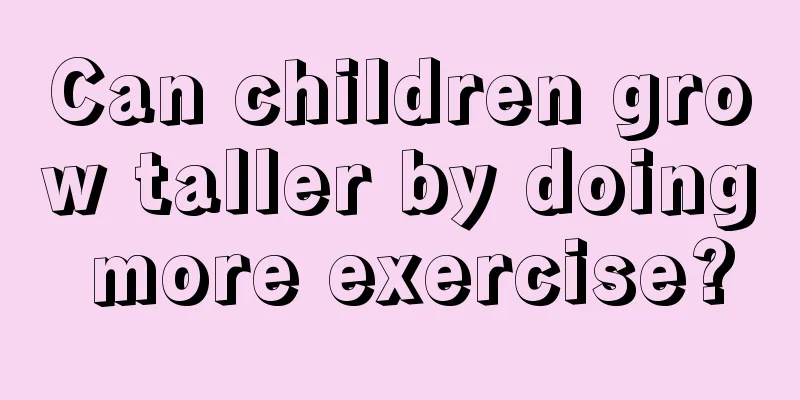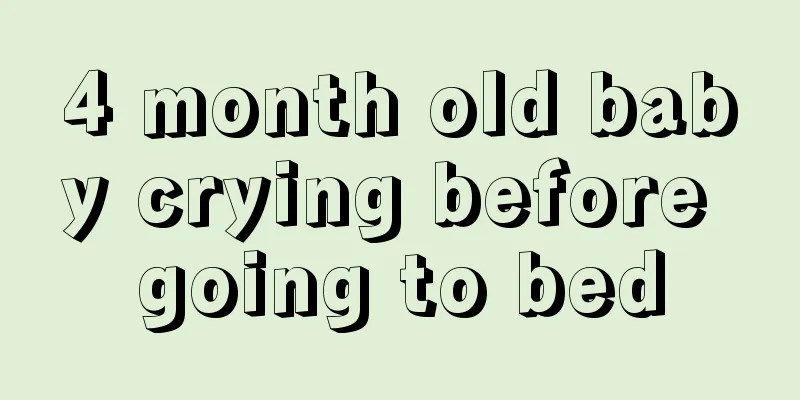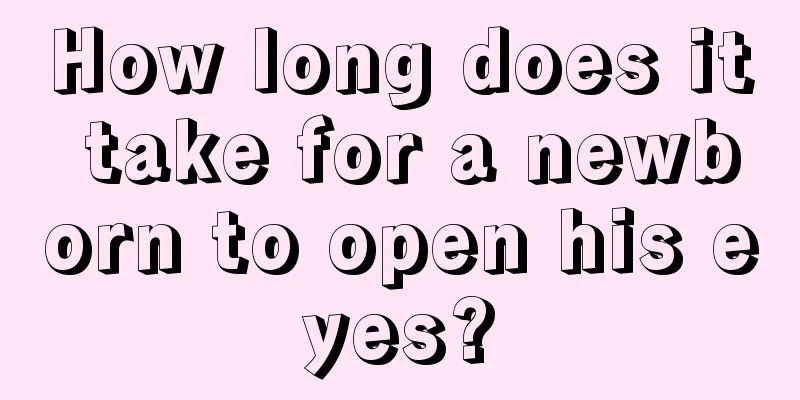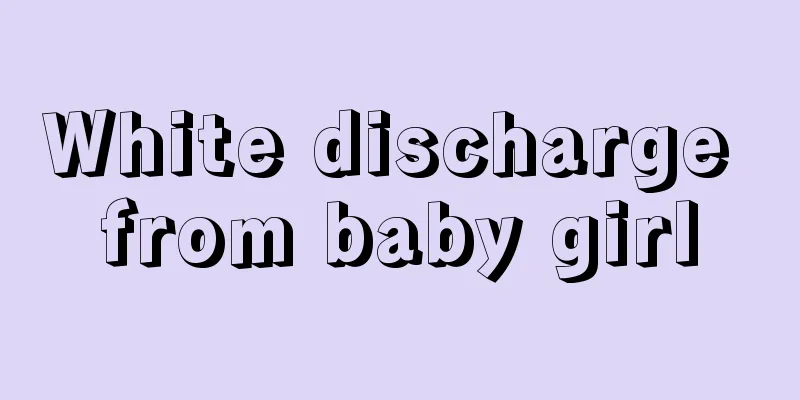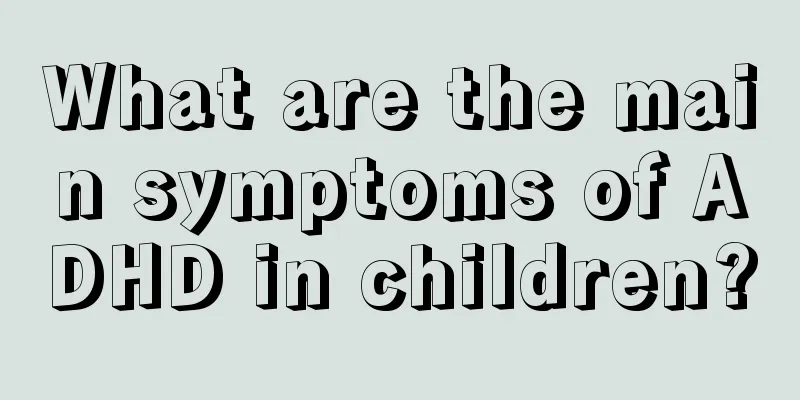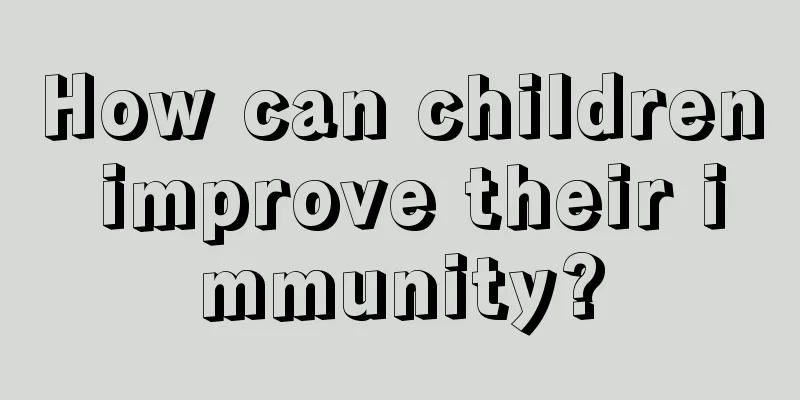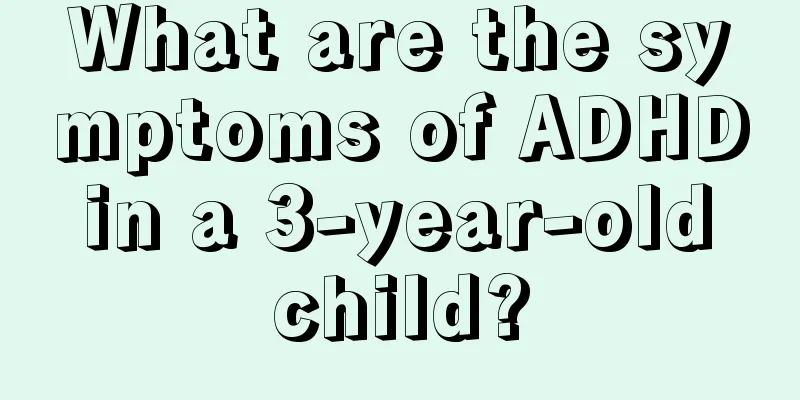How to deal with children's convulsions
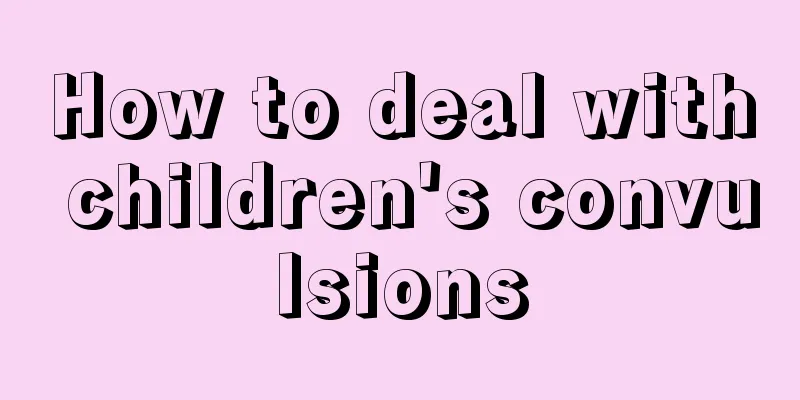
|
As we all know, children will be threatened by many diseases during their growth process, so once we find some abnormalities in the child's body, we must treat it in time to prevent the child from suffering from difficult-to-cure diseases. So, if we encounter a child having convulsions, how should we deal with it? Today we will introduce to you some emergency treatment methods for parents when their children have convulsions. What causes convulsions in children? A convulsion is an involuntary, paroxysmal, strong contraction of the whole or local muscles. There are three types of seizures: tonic (continuous muscle contraction), clonic (intermittent muscle contraction) and mixed (sequential tonic and clonic contractions). There are many reasons that cause convulsions in children, including high fever, epilepsy, tetanus, rabies, calcium deficiency, etc. Among them, calcium deficiency, epilepsy, etc. can cause frequent convulsions in babies, and most sudden convulsions are high fever convulsions caused by fever. Therefore, when the child has a fever, parents should try to control the body temperature. How to deal with children's convulsions How to deal with emergencies when a child has convulsions? Director Ma reminds parents that if their children show convulsion symptoms at home, parents should not panic, but must pay attention to preventing secondary injuries and keep the child's airway open. Prevent secondary injuries: When a child has a convulsion, you should first lay the child down and move away hard and sharp objects around him to prevent the child from hurting himself. You can use a stainless steel or plastic spoon (a ceramic spoon is not recommended to prevent the child from biting the spoon into pieces), wrap it with cloth and let the child bite it between the upper and lower teeth to prevent the child from biting the tongue. Keep the airway open: loosen your collar, turn your head to one side, and clear any foreign objects in your mouth to keep the airway open. Don’t take medicine randomly: When the cause of the disease is unknown, parents should not let their children take antipyretics on their own initiative to avoid delaying the disease. If the high fever convulsion is caused by fever, the child should be given antipyretics in time, and appropriate physical cooling measures should be taken to reduce the child's fever and relieve the convulsion symptoms. Seek medical attention promptly: After completing emergency treatment, you should seek medical attention as soon as possible, preferably at the nearest hospital. How to prevent seizures in children The best way to deal with convulsions is to prevent them. So how do we prevent convulsions in children? To prevent children from having convulsions, the primary disease should be actively treated according to the cause. Epilepsy: If your baby has epilepsy, he or she must take the medication as prescribed by the doctor. If the medication is stopped suddenly, even for 1-2 days, it may cause an epileptic seizure. Febrile convulsions: Fever can easily cause febrile convulsions. When a child has a fever, parents should take appropriate cooling measures, try to control body temperature and prevent convulsions. Director Ma also reminded parents that after a child has had a febrile seizure, it is easy for the child to have a relapse when he or she has a fever. Therefore, parents should pay special attention when a child with a history of febrile seizures has a fever. Calcium deficiency: Calcium deficiency in children can also cause convulsions and affect growth, so children must take in enough calcium (eat more calcium-containing foods and supplement calcium when necessary). At the same time, children should be exposed to more sun. If there is insufficient light, they can take vitamin D at the same time. Others: Rabies, tetanus, etc. can also cause convulsions. Be careful to prevent your child from being bitten by animals. If bitten, seek medical attention in time and get a rabies vaccine. If your child is injured, he or she should be given a tetanus vaccine. |
>>: How to know if the baby has a fish bone stuck in his throat
Recommend
Four and a half year old baby wets the bed
Bedwetting in children is a distressing issue for...
How old is the best pillow for children?
When does the baby start using a pillow? Many mot...
Baby cough with phlegm
With the continuous improvement of modernization,...
Do babies need to take a bath every day?
If you are a mother of a child, you may have this...
What are the signs of baby's growth?
The baby will grow very fast after birth, but par...
Knowledge about white tongue coating in children
Children are the flowers of the motherland and th...
What are some appetizer recipes for children?
The problem of stomach pain has brought great tor...
What’s wrong with my baby’s scrotum swelling?
Scrotal swelling in babies is a disease that many...
How to improve children's memory
Every mother wants her child to learn more than o...
What should I do if a child has a shark fin stuck in his throat?
Everyone knows the many benefits of eating fish f...
What to do if your child vomits and has stomach pain
Parents with children at home will worry about th...
How to prevent brain tumors in adolescents
Brain tumors are no longer a disease of the middl...
What are the signs that your baby's diarrhea is getting better?
The baby's immunity is very low, and diarrhea...
Is dietary therapy effective for baby’s cold? Four dietary treatments for baby colds
Because babies are in the early stages of develop...
What to do if a one-month-old baby has jaundice
We all know that jaundice is a phenomenon with a ...
